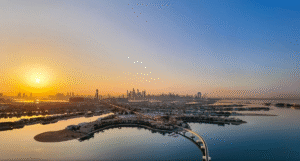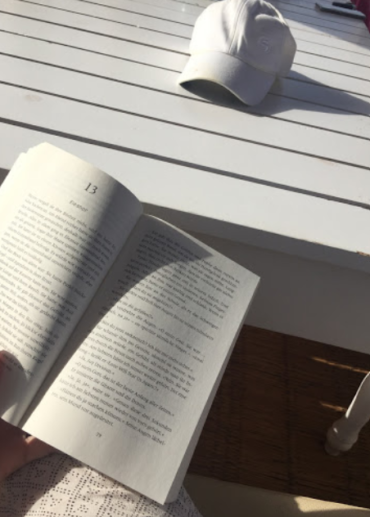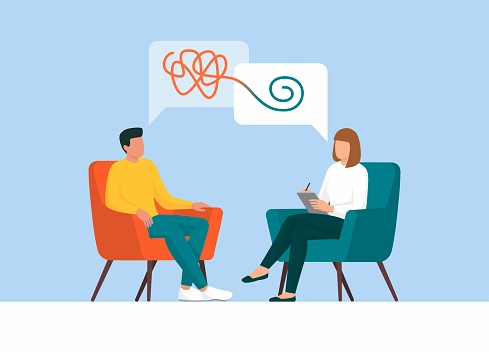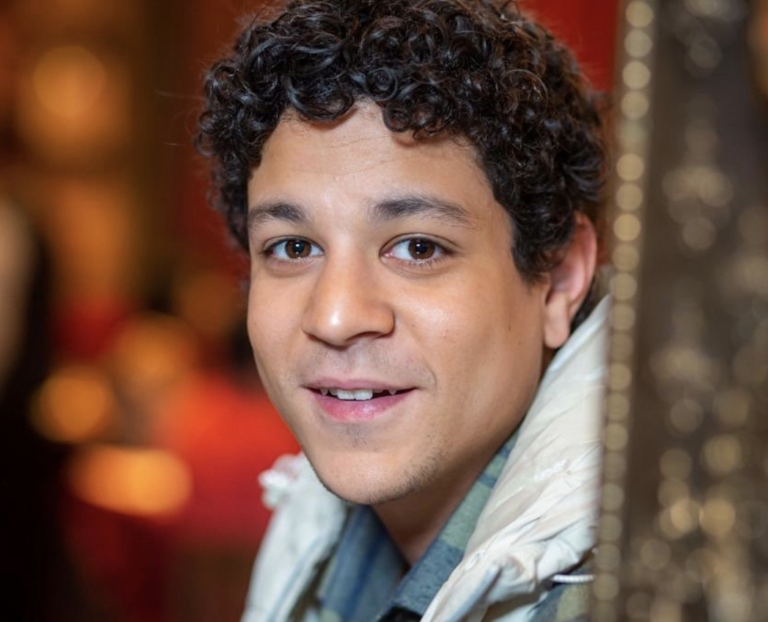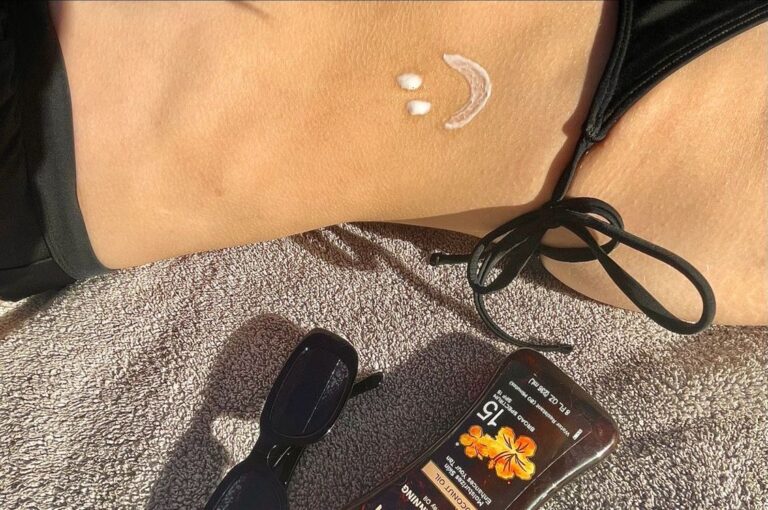
As a MASSIVE bookworm myself, I am constantly stunned by a book’s ability to pick me up and plant me in new worlds, minds and experiences. And the best books not only give you a great reading experience, but can shift something within you and shape your perspectives on the world. Of course, books don’t always need to be purely informative to make you a better person, as it is sometimes mistakenly assumed, but often simply exposing you to controversial and alien experiences through fiction can augment your understanding of the world and the unique experiences of the people within it. As with any medium, literature can both develop your world view or constrain it, depending on the book, so that’s why we’ve put together a list of 10 books that you can read to become a better human (in no particular order)! From classics to non-fiction, and obscure old releases to popular new ones, this list has a little something for every type of reader! (PS. There are plenty of mainstream, popular books that I would love to include within this list, but I thought I might recommend some of the lesser known ones that you are less likely to have heard of)
1. The Dead House by Dawn Kurtagich

People sometimes have the idea that works of fiction cannot be valued beyond entertainment, while only non-fiction can be truly enlightening. The Dead House proves this sentiment wrong. A sensational psychological thriller, the book both entertains and enlightens. The story follows the life of Kaitlyn/Carly who suffers from Dissociative Identity Disorder (DID). Carly is awake during the day and Kaitlyn owns the night. They leave each other notes to smoothen the transition and lead separate lives. On the suspicious deaths of their parents Kaitlyn/Carly is moved to a psychiatric hospital and then a school for troubled teens where a doctor attempts to integrate the personalities and things start to go topsy turvy. Told through epistolary narratives (diaries, letters, notes etc) the book dexterously handles the fictional plot of suspicious incidents and the mysterious dissppearances of teens from the boarding school along with the emotional turmoil of a student with DID. This is a can’t-put-it-down-once-you-start-reading book, and readers with a taste for horror will absolutely love it!
2. Girl on a Plane by Miriam Moss

‘Girl on a Plane’ is a gripping story centred around a 15 year old girl named Anna, who while flying back to her boarding school in England has her plane hijacked by the PFLP and is flown to the Jordanian desert. Based on author Miriam Moss’ own experiences, this tale explores the haunting experience of a hijacking through the eyes of a school girl, and while the somewhat sympathetic exploration of the ‘other side’s’ perspective sparked some controversy, the book is nonetheless an enlightening and accessible read. As a reader, you can decide whether you agree with Anna’s perspective or not and if you would like an unbiased perspective to compare Anna’s experience to, I would recommend doing some explorative reading around the Dawson’s Field hijackings yourself!
3. Veronika Decides to Die by Paulo Coelho

A lot of you may know Paulo Coelho for his I’m sure that all of you have heard of Paulo Coelho, author of the world bestselling novel, ‘The Alchemist’ (which I shied away from recommending because of its insane popularity. Chances were you had either already read it or heard of it) This lesser known, though equally well-written story by Coelho is a darker read, and recommended for a more mature audience. Based on personal experiences at various mental institutions, the book deals with the concepts of conformity, madness and death through the character of 24-year-old Slovenian Veronika who appears to have everything going for her, but decides to try to kill herself. Though she finds herself saved when she wakes up in a hospital, she is told that she has a week of life left before she dies. Despite the morbid title, this book retains the spirit of the Alchemist, in that it improves the reader’s understanding of the universe and inspires them to strive to not settle into the kind of routine they don’t wish to be in. While I have read many popular YA novels that deal with the themes of self harm and suicide from a teenage point of view, I have found the more mature and oftentimes philosophical perspectives taken by this author to be vastly insightful.
4. On Looking by Alexandra Horowitz

‘On Looking’ is a non-fiction book by the New York Times bestselling author of ‘Inside of a Dog’, Alexandra Horowitz, and deals with the art of seeing, or as Arthur Conan Doyle put it, “the observation of trifles”. The book is structured around a series of eleven walks the author takes with a diverse range of experts, including as urban sociologist, an artist, a geologist, a physician and a sound designer. She also walks with a child and a dog to see the world as they perceive it. WHAT they see, HOW they see it and why most of us do not see the same things reveal the straddling power of human attention. While I, as an avid fiction reader, was initially reluctant to pick this up for fear that it would be a dry read, I found myself pleasantly surprised. The book is accessible to both young and older readers and as Susan Orlean, author of Rin Tin Tin puts it, “Horowitz writes like a poet, thinks like a scientist and ventures like an explorer”.
5. The Prisoner’ by Omar Shahid Hamid

‘The Prisoner’ by Omar Shahid Hamid is the author’s debut novel about Karachi’s criminal underground and explores the kidnapping of American journalist Jon Friedland from one of the city’s poshest neighbourhoods. His captors post a video of his execution on Christmas day, embarrassing the Pakistani government in front of their US allies. The story moves through the backstreets of Karachi, taking the reader into an all too real world of jihadis, corrupt police officers and bloodthirsty political henchmen- all placed together in a city where no one is quite what they seem. Well-paced and authoritative, the book provides a thrilling mystery that takes the reader on an adrenaline-spiced ride through the murky underworld of Karachi, all while revealing some very real problems in a society where corruption and extremism are commonplace and where the divide between good and bad people is not so much a line as a fuzzy and indeterminate grey area. Moral ambiguity is a theme that has intrigued me and the dark side of the world that this book reveals was a far throw from my own, cozy life but certainly opened my eyes to the harsh realities that many have to endure.
6. Turtles All The Way Down by John Green

I realized the book recommendations may have been getting a tad bit too dark (oops) and I thought I’d lighten things up with this enjoyable, but no less profound, YA contemporary story by an author that you are all bound to know from his bestselling novel ‘The Fault in our Stars’. This coming of age story is about lifelong friendship, the intimacy of an unexpected reunion, Star Wars fan fiction, and tuatara. At the heart of the story is Aza Holmes, a girl and extreme germaphobe, navigating daily existence within the ever-tightening spiral of her own thoughts. As teenagers, all of us have undoubtedly gone through our own suffocating spirals, and the unflinching clarity with which John Green writes this book had me relating deeply with the character and sympathizing with her condition. As usual, Green’s ability to write with incredible emotional and aesthetic poignancy stuns the reader, and there is no doubt that you’ll leave the book dog-eared, highlighted or bookmarked with some of your favourite quotes (I know I certainly did!)
7. I’m Still here by Austin Channing Brown

This spellbinding and incredibly relevant memoir by Austin Channing Brown provides a vastly insightful account of growing up black, Christian, and female that exposes how white America’s love affair with “diversity” so often falls short of its ideals. Growing up in majority-white schools and churches, Austin writes, “I had to learn what it means to love blackness,” a journey that led to a lifetime spent navigating America’s racial divide as a writer, speaker, and expert helping organizations practice genuine inclusion. Published in 2018, I’m SO glad that the book has become a best-seller in the recent 2020 resurgence of interest in racial injustice following the George Floyd protests. It’s definitely a must read for everyone who would like to raise their own awareness of the very real and current issues of racial injustice and her stories “bear witness to the complexity of America’s social fabric – from black Cleveland neighborhoods to private schools in the middle-class suburbs, from prison walls to the boardrooms at majority-white organizations.”
8. Vox by Christina Dalcher

Lovers of Marget Atwood’s ‘the Handmaid’s Tale’ and Virgina Woolf’s feminist essays will absoluetly adore this new, bestselling work of fiction by Christina Dalcher. Set in a dystopian future where a new, misogynistic government has recently come to power, the novel contains within it a frightening speculation of the twist our reality could take if extremist thought overpowers rational sentiment. At the centre of the story is Jean McClelllan, a wife and mother who spends her time in almost complete silence, limited to just one hundred words a day. Any more and a thousand volts of electricity will course through her veins. I’m not going to lie, as a feminist I found this book MADDENING, and I had several moments where I wanted to scream into a pillow at the injustice of it all. The most haunting aspect of the book is how Dalcher forces the reader to confront the realities of the patriarchal societies of the past, while uniting it with the frighteningly realistic possibility of the re-emergence of such sentiments. In the book, almost overnight, bank accounts are frozen, passports are taken away and seventy million women lose their jobs. Even more terrifyingly, young girls are no longer taught to read or write.
9. The Boy In The Striped Pyjamas by John Boyne

‘The Boy in the Striped Pyjamas’ is considered a WW2 classic, by John Boyne, and was first introduced to me in my Year 7 english class. Usually, I make a point of detesting the books I have to learn at school, but it was impossible not to be touched by this heartbreaking story that is centred around the events of WW2 in Nazi Germany. The reader accompanies a 9-year old boy named Bruno who knows nothing of the Final Solution and the Holocaust. All he knows is that he has been moved from a comfortable home in Berlin to a house in a desolate area where there is nothing to do and no one to play with. That is, until he befriends Shmuel, a boy he meets on the other side of a fence, who wears striped pyjamas. The heartwarming innocence of childhood and the notion that division only lies within the mind is explored by the author in this tale of two young boys. Two young boys who are unaware of the harsh and unjust realities of the world. Ultimately a tale of a friendship, I’d suggest you keep a box of tissues by your side for this one. Trust me, you’ll need them.
10. The Golden Compass by Philip Pullman

And last, but by no means least on the list, is my childhood favourite, ‘The Golden Compass’ (which was utterly ruined by the movie and TV show adaptations as so many good books are *moment of silence of The Mortal Instruments, Percy Jackson, Artemis Fowl and so many others* You deserved better) Aside from wanting to include it simply because of how much I ADORE this book, Philip Pullman’s ‘His Dark Materials’ trilogy may on the surface be a heartwarming story about adventure and fantasy but is also a deeply insightful exploration of childhood, innocence and growing up, and tackles questions like what it means to be a child, and the qualities we often lose as we mature. The story is centered around the 11-year old girl Lyra as she embarks on a quest to save her best friend, Roger. And in Lyra’s world, which exists parallel to the reader’s world, all humans have dæmons, physical manifestations of a person’s soul and conscience that take the form of animals. And that’s just a teensy-weensy part of the meandering adventure that the Golden Compass takes the readers on. Pullman uses the frame of a conventional fantasy story to explore deeper ideas on humanity, identity and the soul as well as religion, politics and control and destiny and free will in a very accessible way, allowing both younger and older readers to enjoy this AMAZING novel.
And that’s all of them. I’ve got to admit, it was SO SO hard narrowing down the BAZILLIONS of books I wanted to recommend to a list of 10, and I ultimately settled on the most diverse range of stories that I could find. If I could, I would go on for pages more about books like Ishiguro’s ‘The Buried Giant’, Barry’s ‘A Long Long way’, Fitzgerald’s ‘The Great Gatsby’, Wilde’s ‘The Picture of Dorian Gray’, Atwood’s ‘Testaments’, Plath’s ‘The Bell Jar’ and on and on and on and on (and yes that was me, ever so subtly trying to sneak in more recommendations *wink*). But I’ll stop now, and give you guys a chance to explore these books which I hope you’ll find as enjoyable and enlightening as I did!
Written by: Rachel Deyis

